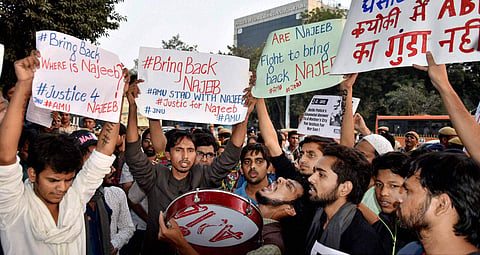

NEW DELHI: The Delhi High Court on Friday said that it had asked the city police to explore methods like lie-detector tests for those who are connected with the disappearance of the Jawaharlal Nehru University (JNU) student Najeeb Ahmed, as all other leads have failed to yield any result so far.
Najeeb, 27, has been missing since October 15 last year, following an altercation with Akhil Bharatiya Vidyarthi Parishad (ABVP) students at his hostel the night before.
Later, Najeeb’s mother Fatima Nafees had moved a habeas corpus plea in the court seeking help to trace her son.
The latest order comes despite the fact that information gained from brain mapping, narco analysis and lie detector (polygraph) tests are not acceptable in Indian courts.
A few years ago, the Supreme Court had ruled that such tests violated individual rights and said the police cannot use the tests or probe any leads arising from them unless suspects willingly volunteer to take the tests.
“The student had gone missing in October (2016), it is February now. Nearly four months have gone by and none of the leads is going anywhere. We asked for polygraph tests as the other leads have not yielded any results,” said a Bench comprising Justices G S Sistani and Vinod Goel.
The Bench was hearing an application by one of the nine students, who are suspects in the case, seeking the recall of the High Court’s December 14 and December 22, 2016, orders asking the police to conduct lie detector tests on them.
According to the application, these orders prejudiced the probe and had violated their rights under Articles 21 and 22 of the Constitution.
Najeeb lookalike detained, later released by Delhi police
Missing JNU student Najeeb Ahmed's family claims harassment by Delhi Police
Man who made 'ransom call' to Najeeb Ahmed's kin interrogated
JNU student missing: Delhi Police to conduct lie detector test on Najeeb’s friend
600 cops scanned JNU campus, still clueless about Najeeb